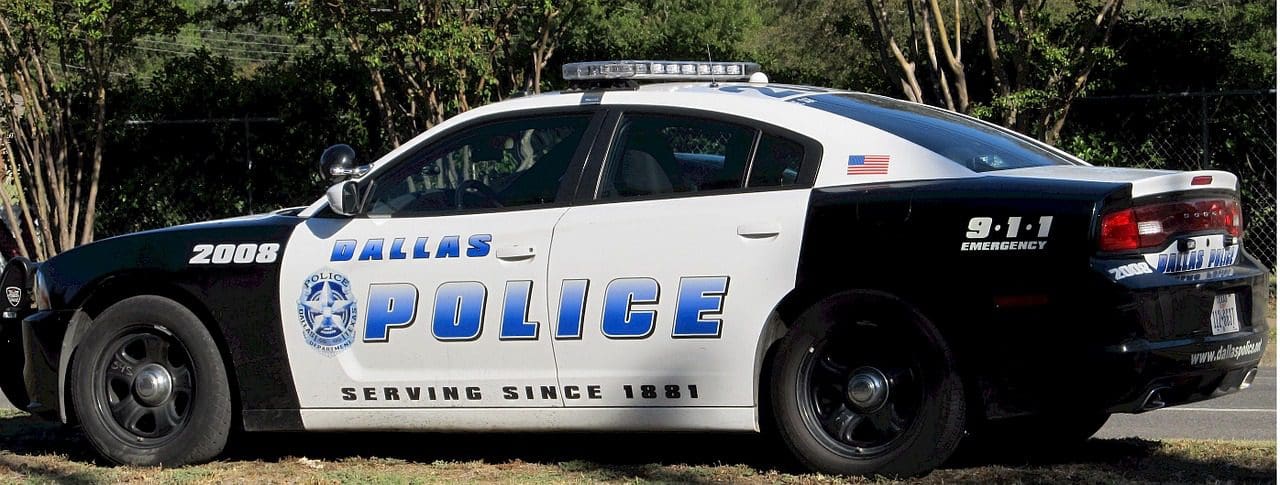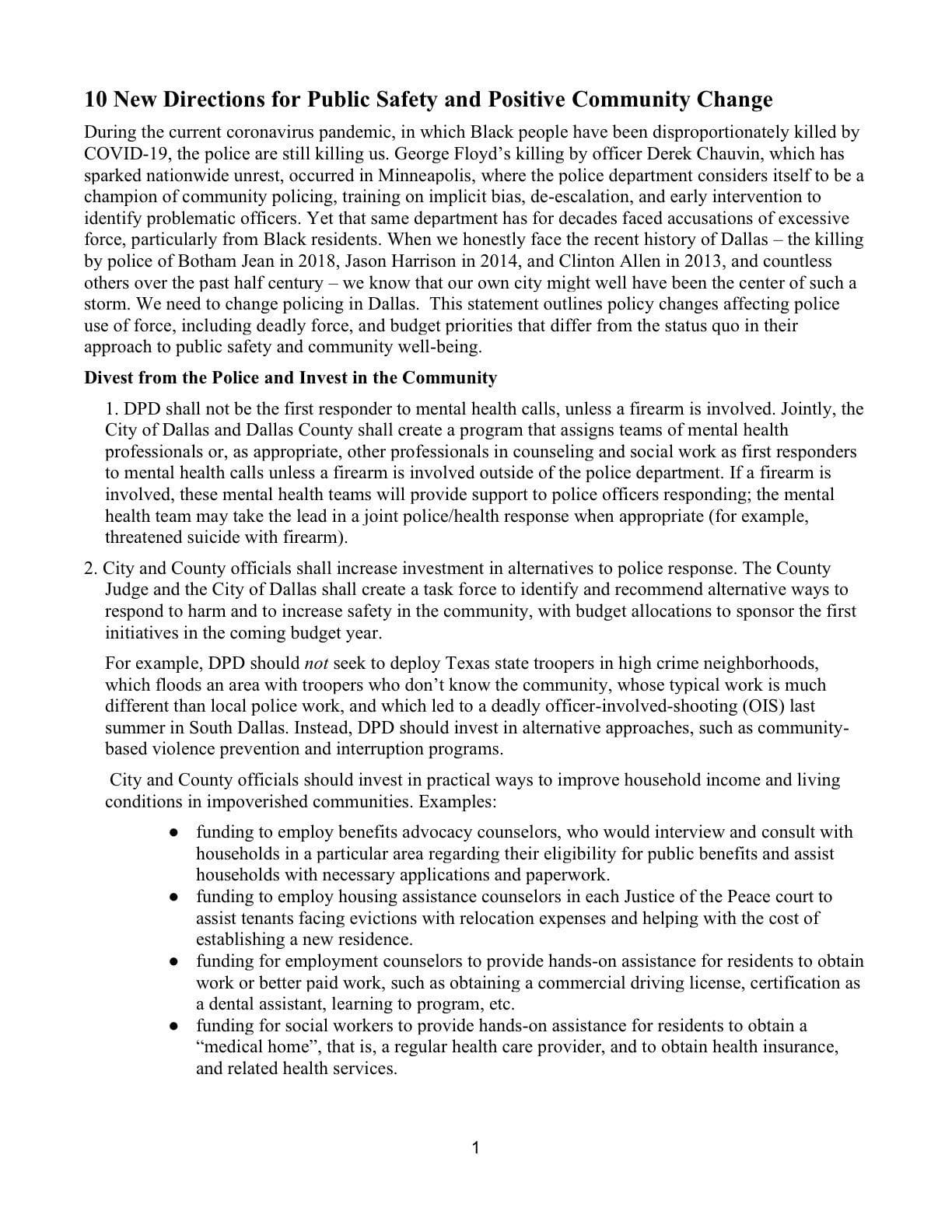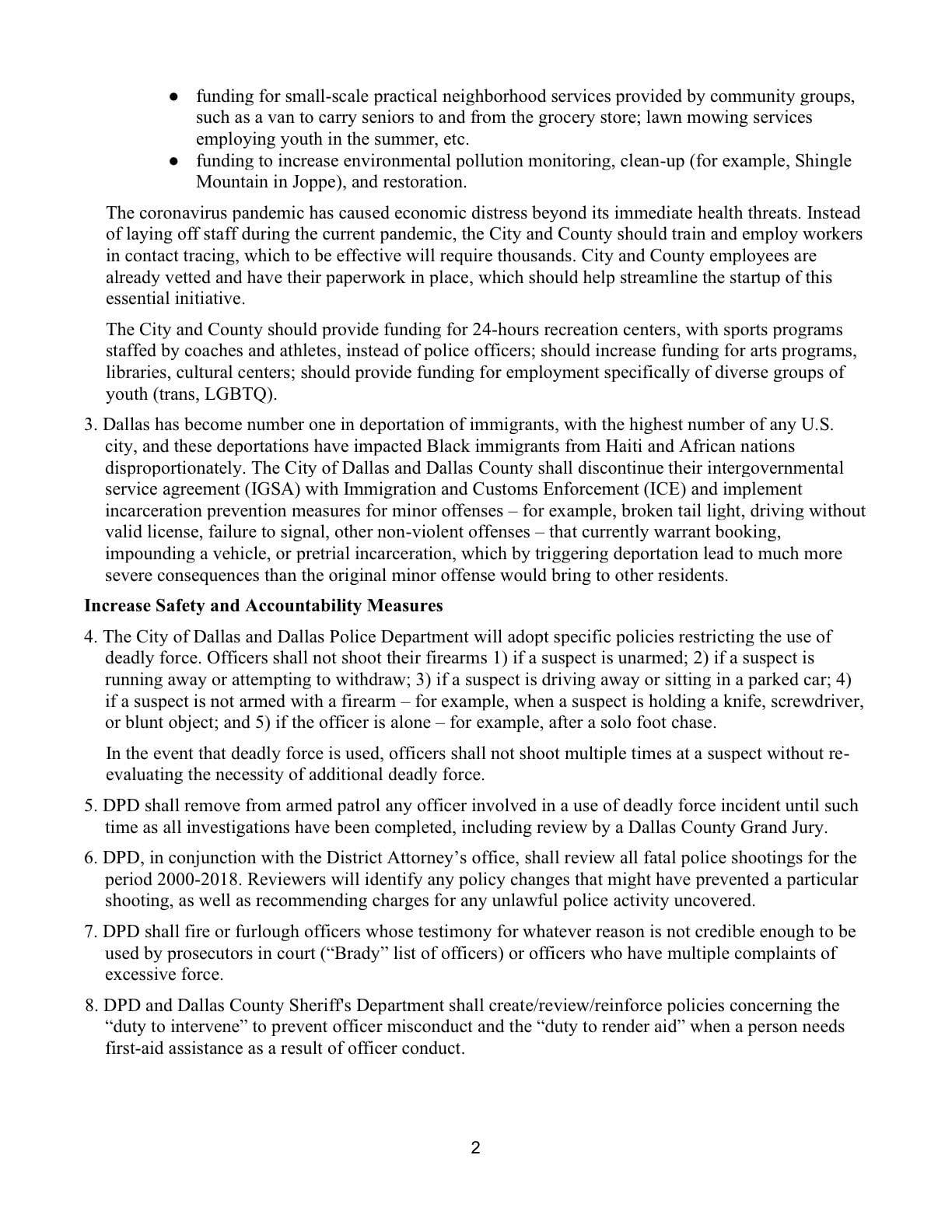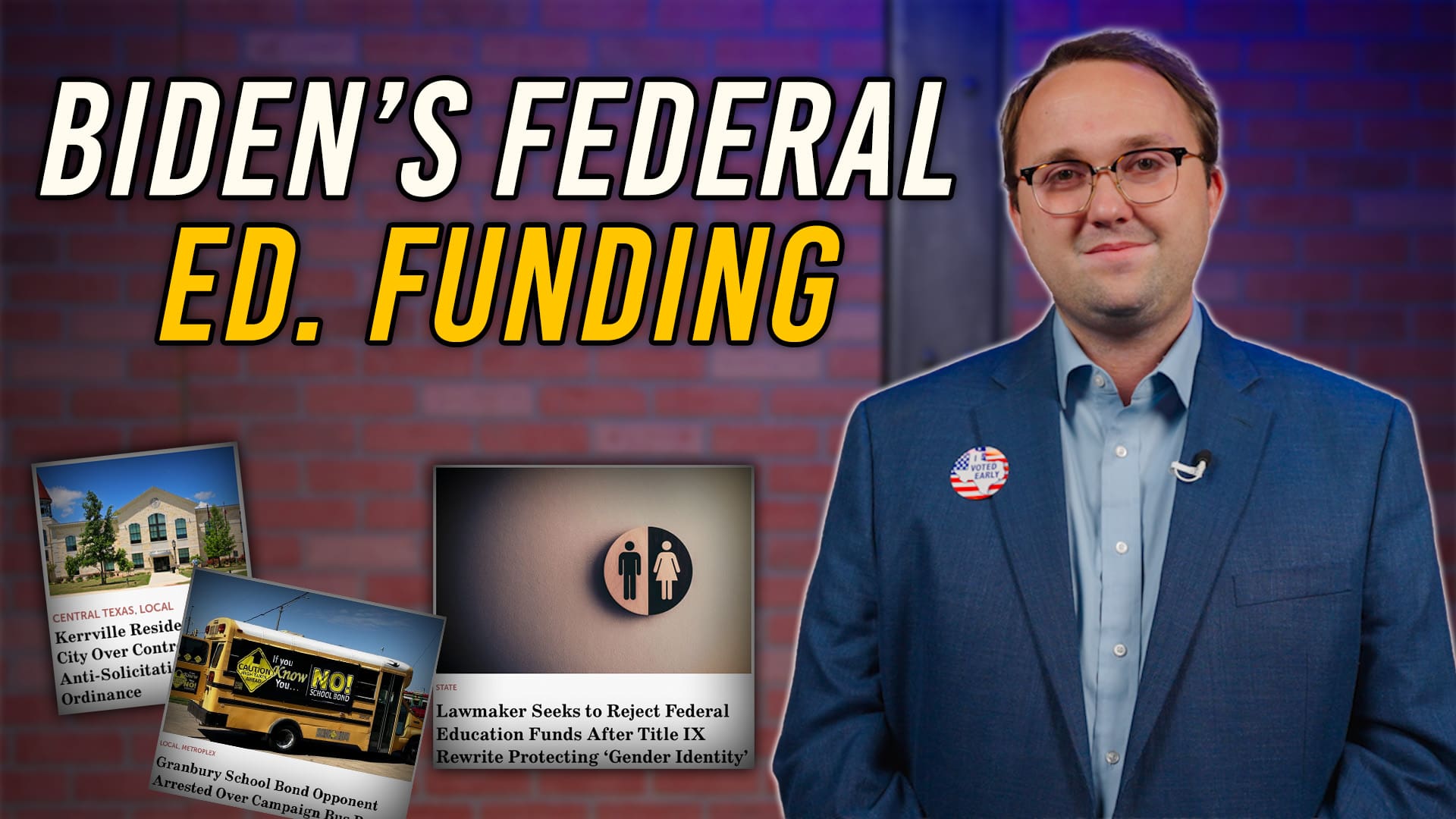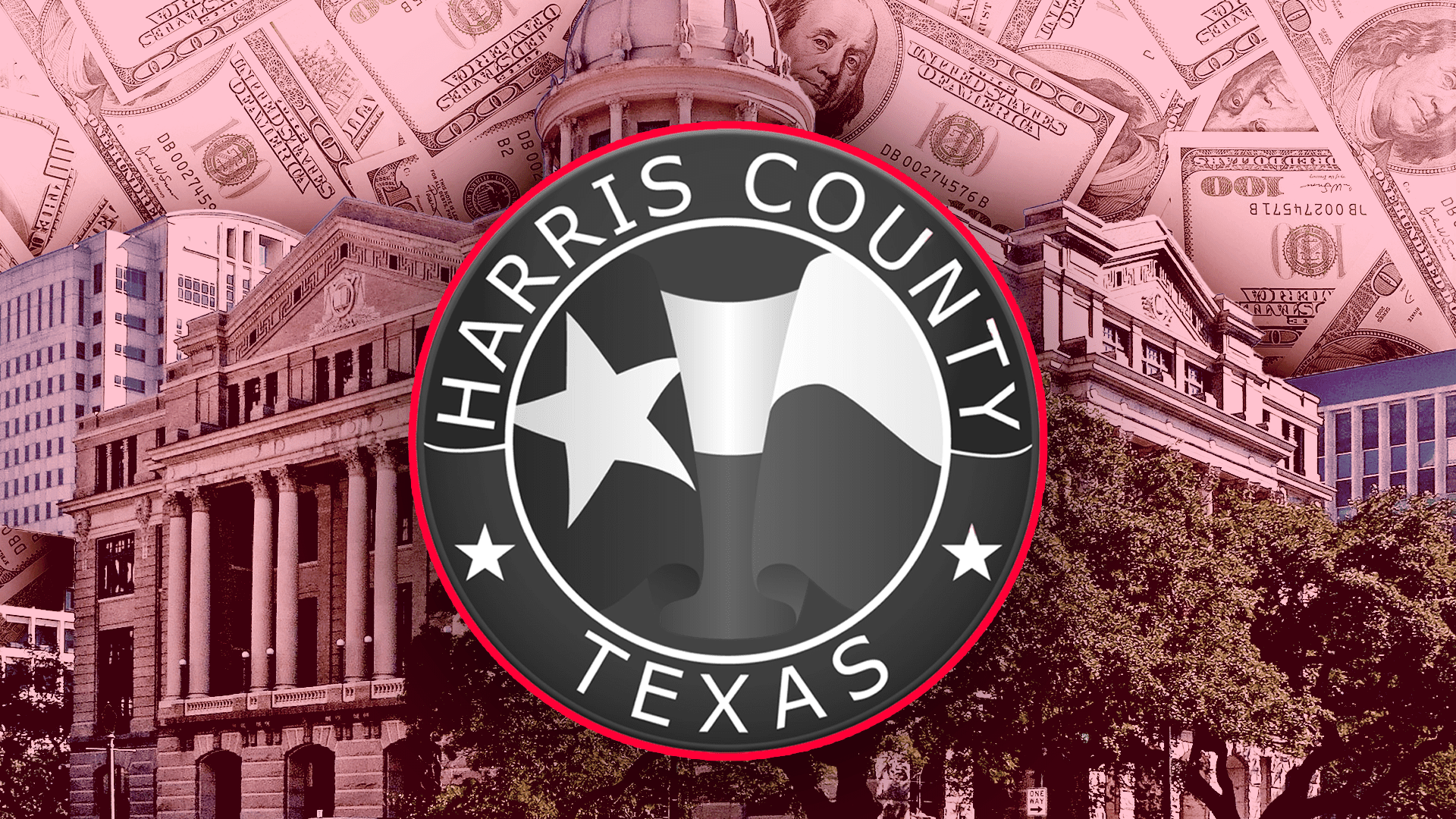UPDATE 06/08/2020 – Evening: Councilmembers Jennifer Gates, Cara Mendolsohn, and Chad West have said they are against eliminating the Dallas Police Department.
UPDATE 06/08/2020 – Afternoon: Dallas Mayor Eric Johnson says he is against eliminating the Dallas Police Department. Only Councilmembers Bazaldua, Mendolsohn, and West have given answers as to where they stand. Texas Scorecard is still awaiting replies from rest of the city council.
As organizers involved in protests-turned-riots in Dallas push for larger government and eliminating the police department, a Dallas City Council member has joined their cause. The goal of delivering real accountability and transparency of the police, however, has been lost in the argument.
At the end of May, protests organized by a leftist coalition turned into riots in the City of Dallas after the tragic death of George Floyd at the hands of then-Minneapolis police officer Derek Chauvin.
This is the same coalition that pressured the Dallas City Council to pass feckless reforms for an already feckless police review board.
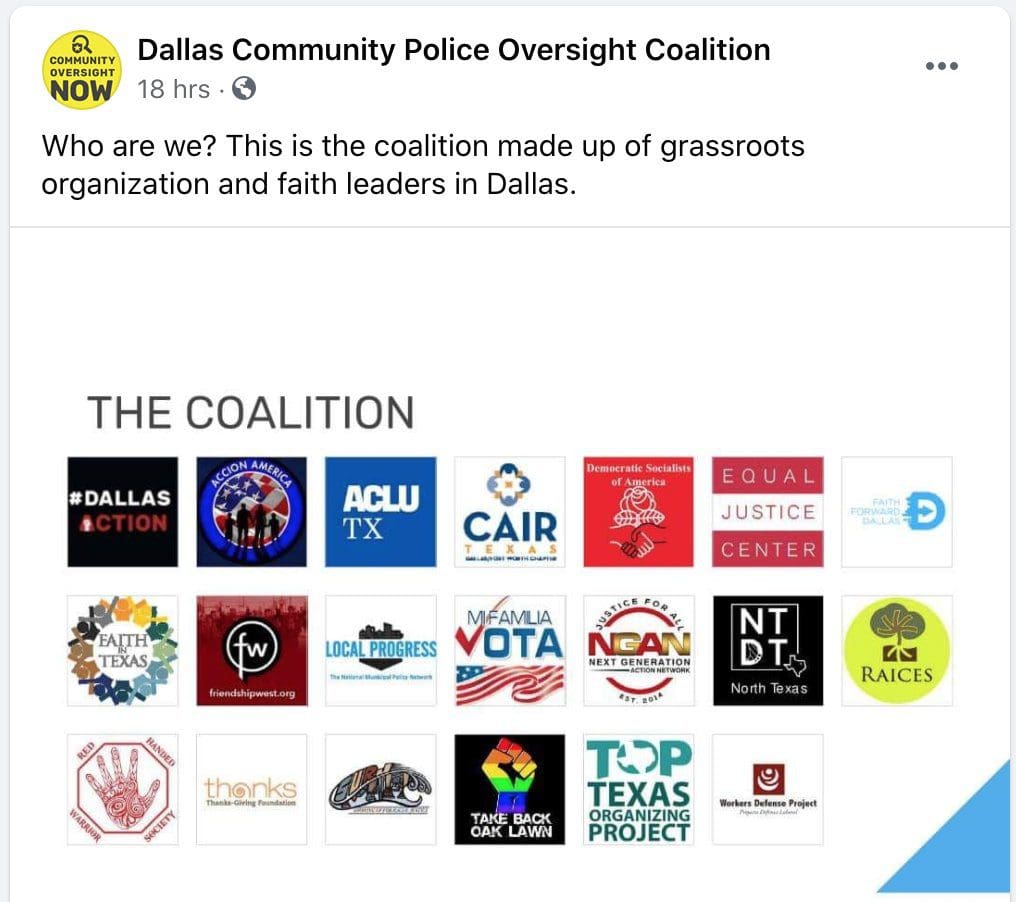
The coalition submitted a list of demands to elected city and county officials. “There are one or two items in this list that are actually decent ideas, but 99 percent of this list is liberal claptrap,” said Derek Cohen, director of Right on Crime, a criminal justice reform organization.
“We can’t necessarily castigate an entire profession for the action of what the bad apples do,” he added.
One of the key demands of the coalition is to eliminate the Dallas Police Department and reallocate those taxpayer dollars to government programs like employment counselors, social workers, and 24-hour recreation centers.
“Divest” means to “rid of or free from“; it is another word for “eliminate.” On Sunday evening, the Minneapolis City Council indicated they will eliminate their police department.
If the police department is eliminated, what exactly would replace it? Also, what would be done about rising crime in parts of Dallas where citizens have cried out for more police protection?
Sunday evening, Dallas Councilmember Adam Bazaldua said he would oppose eliminating their police department.
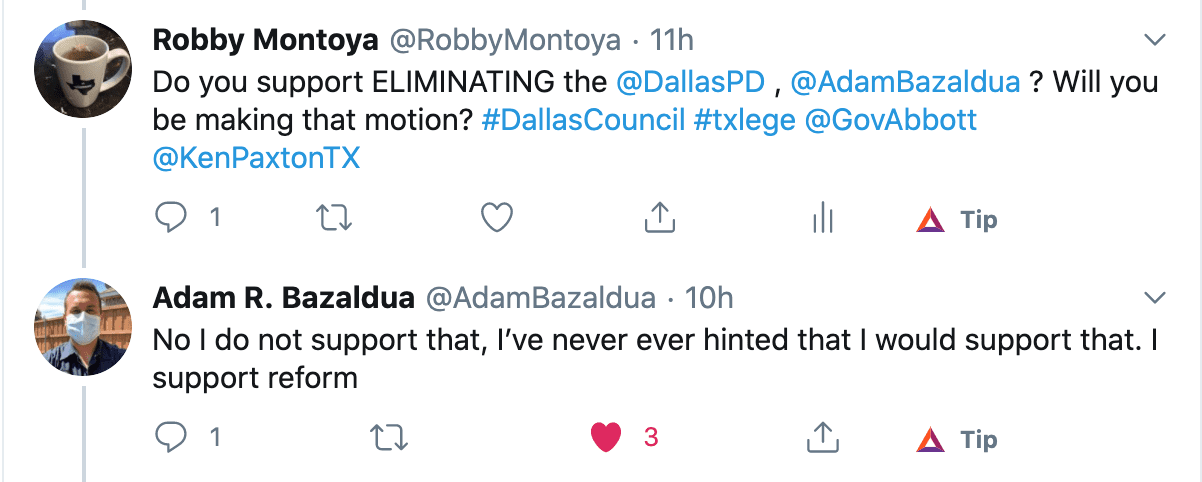
However, early Monday morning, he backtracked and announced his support for elimination, opting to use a different word that means the same thing.
Bazaldua also tweeted a news article in which he said he would not vote on a budget that wouldn’t eliminate the police department and then reallocate those taxpayer funds elsewhere, rather than returning them.
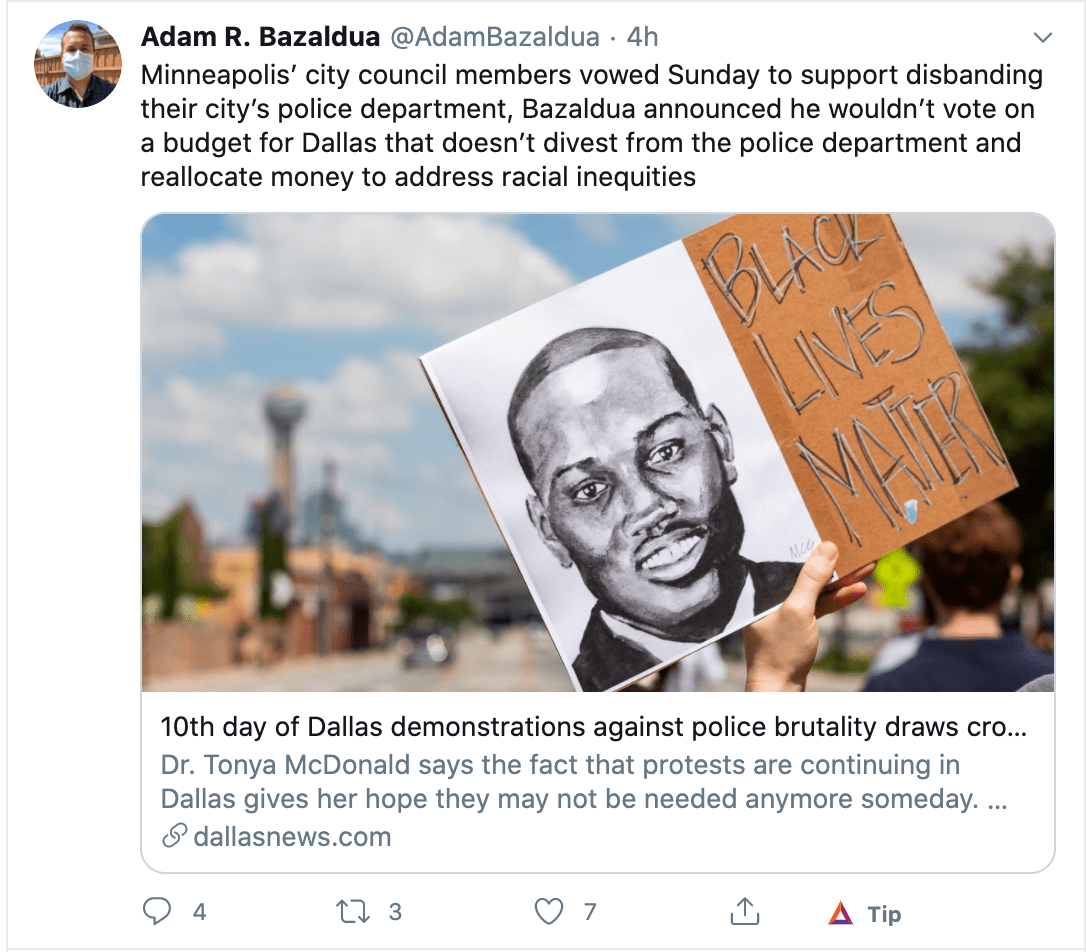
He also previously said, “We need to divest from our police department and invest in 21st century solutions.” Again, “divest” is a different word for “eliminate,” and the vast majority of the solutions proposed would grow government—not bring police reform—at the expense of taxpayers in a time when millions of Texans became unemployed as a result of the government-mandated economic shutdown.
Former city council candidate Warren Johnson took Bazaldua to task for his position, threatening a possible future electoral challenge. “Pray I don’t move to your district,” he said.
Lost in this conversation are real reforms that would deliver more accountability and transparency from the Dallas police, such as reopening their collective bargaining agreement with the police associations. According to Cohen, these agreements address training requirements, fitness requirements, and department standard operating procedures. Better training would provide officers with more tools to resolve situations other than force, and officers who are more physically fit will have more options than just using a firearm when dealing with a situation.
On June 4, Councilman Lee Kleinman shared a video from 2018 where he accused police unions of protecting officers who were “gunning down members of our community.” He has yet to reply to inquires on whether he would support reopening the city’s collective bargaining agreement with the Dallas Police Association—which, in Dallas, is called a “meet and confer” agreement. In 2017, Kleinman was caught claiming he still had the endorsement of the DPA after they had retracted it.
Another real reform would be terminating any officers who “have had sustained incidents of untruthfulness, criminal convictions, candor issues, or some other type of issue placing their credibility into question.” This is called having a Brady or Giglio list, and district attorneys will not call officers who have such a list to testify in court. “From a public integrity standpoint, people with Giglio files should not be police officers,” Cohen said in an interview.
Bazaldua previously said he would speak with Dallas District Attorney John Creuzot and ask if any Dallas police officers have such a file.
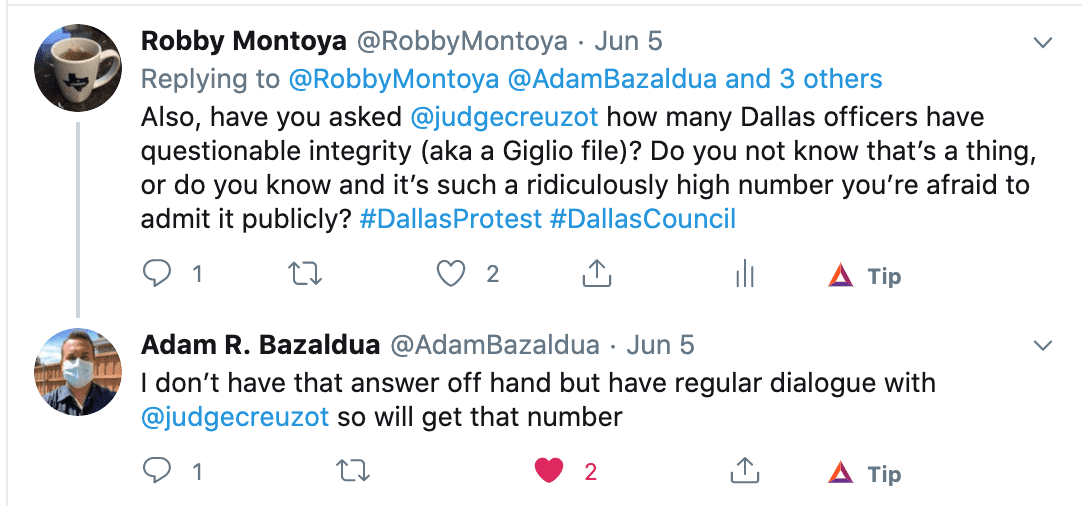
Bazaldua did not give a specific time when he would announce the results of such a conversation.
At this point, only Councilmembers Cara Mendolsohn and Chad West have publicly opposed eliminating the police department. “No, I would not support that and I have not heard or seen that from any official source,” Mendolsohn wrote.
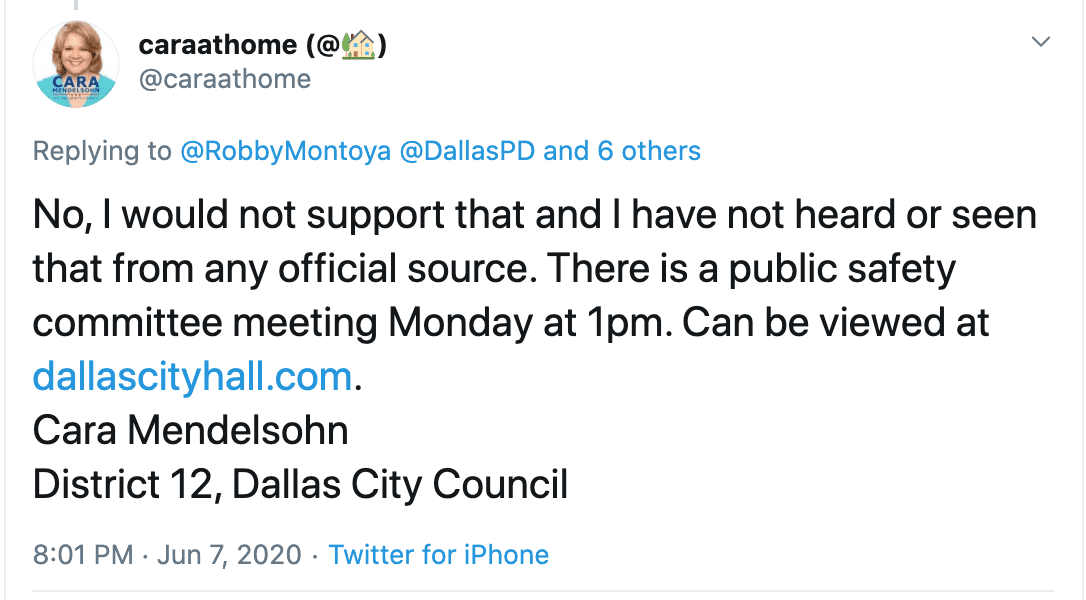
“Public safety was a priority of my campaign,” West said in a statement to Texas Scorecard.
“Constituents from my district and others in the southern sector of Dallas have been pleading for better patrols and improved public safety, so I am NOT in favor of eliminating the police.”
He said he wants to improve the quality of the force, keep top talent, increase training in tools to de-escalate conflict, and bring about more police transparency through the use of body cams.
Texas Scorecard has sent inquiries to Mayor Eric Johnson and the rest of city council about where they stand on eliminating the police department.
The council’s public safety committee will discuss a plan from City Manager T.C. Broadnax that contains recommendations for more police transparency but misses the mark of what Cohen said would deliver real police reform. The committee will meet at 1 p.m. today.
The city council will meet on Wednesday at 9 a.m.
Concerned voters may contact the Dallas City Council and Mayor Johnson.
Lee Kleinman: sophia.figueroa@dallascityhall.com; 214-670-7817
Adam Medrano: adam.medrano@dallascityhall.com; 214-670-4048
Tennell Atkins: maria.salazar2@dallascityhall.com; 214-670-4066
Adam Bazaldua: Yesenia.Valdez@dallascityhall.com; 214-670-4689
David Blewett: david.blewett@dallascityhall.com; 214-670-5415
Adam McGough: adam.mcgough@dallascityhall.com; 214-670-4068
Chad West: Chad.West@dallascityhall.com; 214-670-0776
Casey Thomas: richard.soto@dallascityhall.com; 214-670-0777
Carolyn King Arnold: District4@DallasCityHall.com; 214-670-0781
Jaime Resendez: jaime.resendez@dallascityhall.com; 214-670-4052
Tennell Atkins: maria.salazar2@dallascityhall.com; 214-670-4066
Paula Blackmon: District9@DallasCityHall.com; 214-670-4069
Adam McGough: adam.mcgough@dallascityhall.com; 214-670-4068
Cara Mendelsohn: cara.mendelsohn@dallascityhall.com; 214-670-4067
David Blewett: david.blewett@dallascityhall.com; 214-670-5415
Jennifer Gates: jennifer.gates@dallascityhall.com; 214-670-7057
